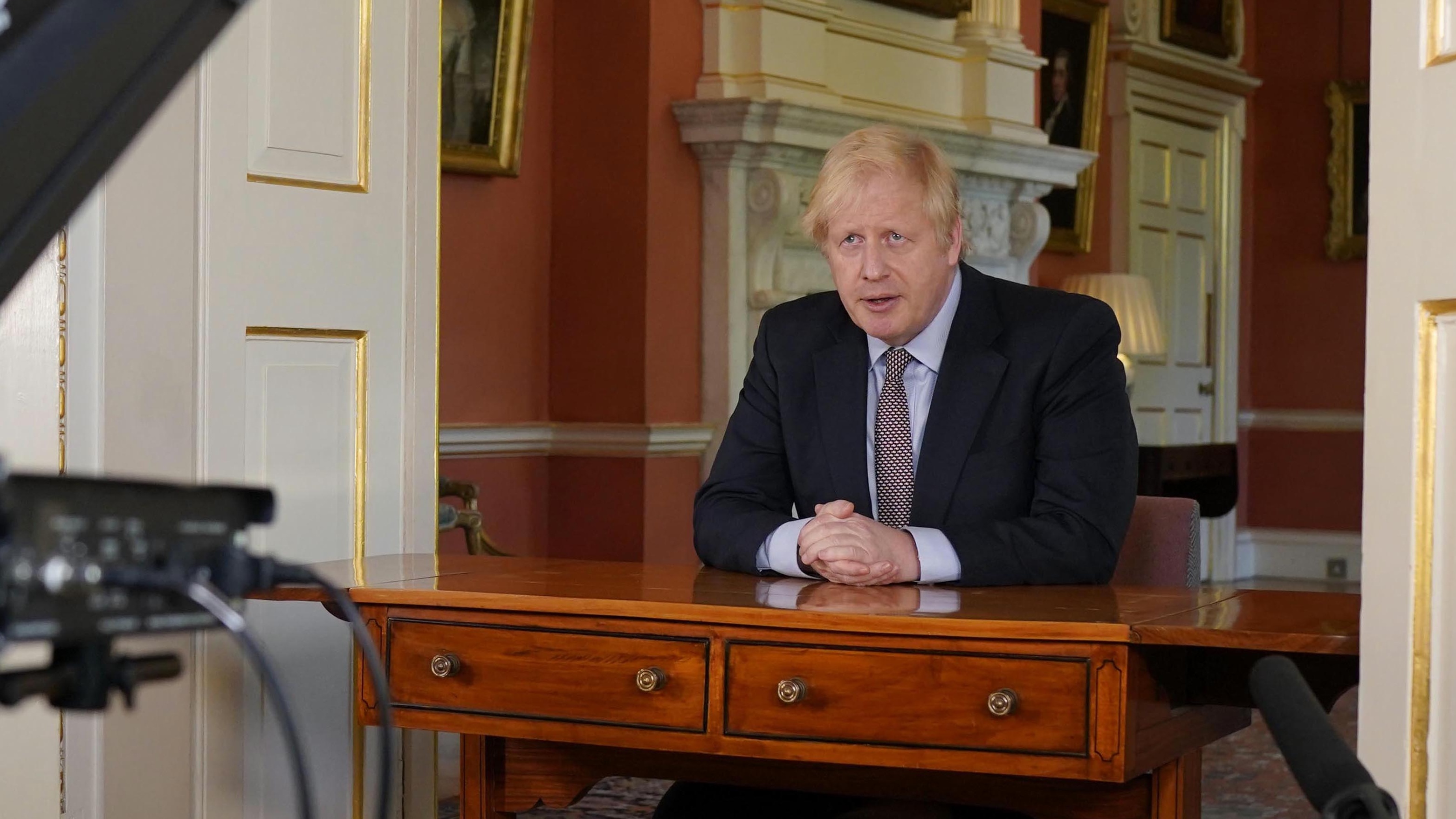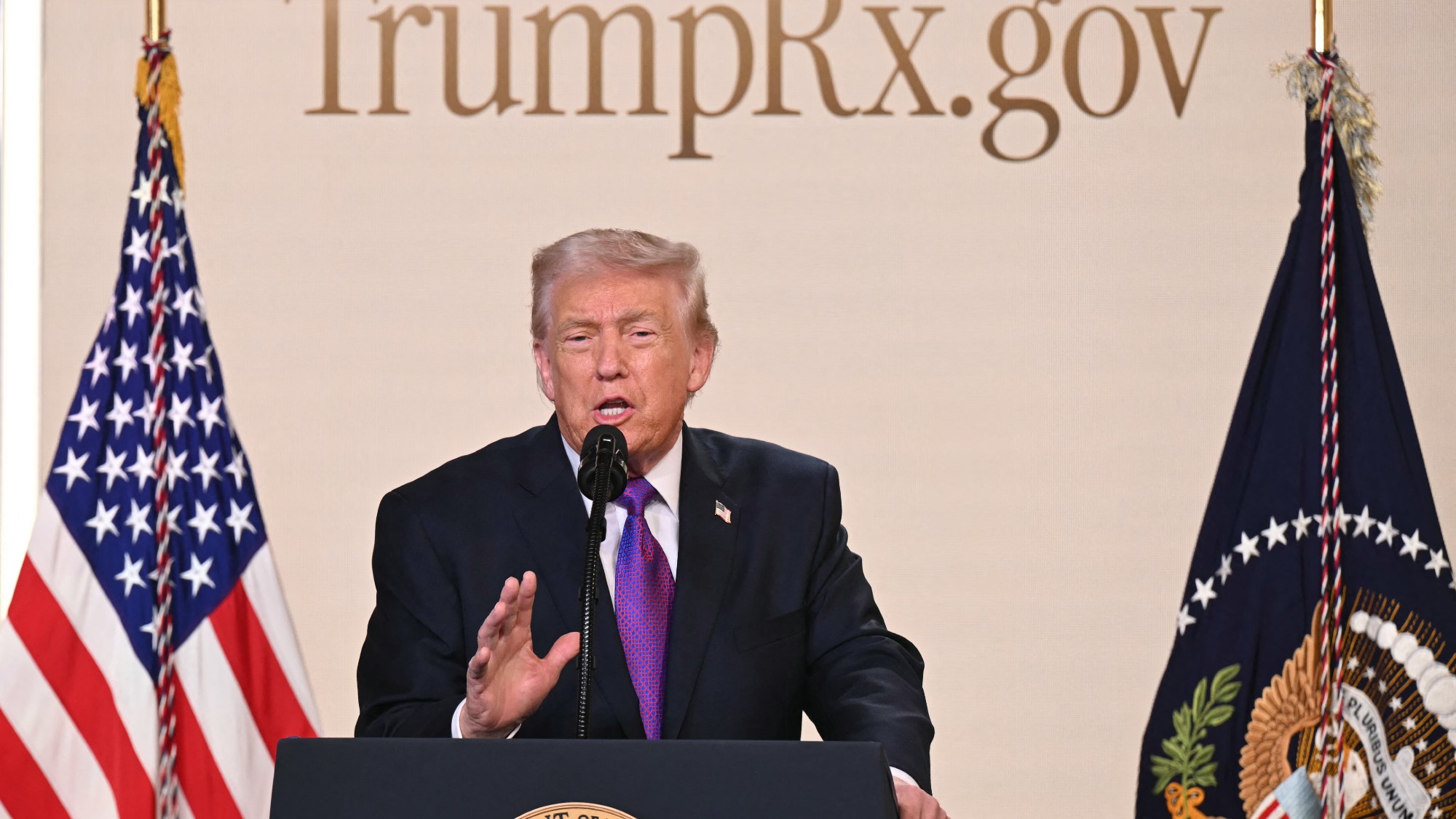Reaction: Boris Johnson faces ‘backlash’ over coronavirus lockdown exit plan
New road map ‘offers hope to fiscal hawks’ but is ‘too vague’, say critics

A free daily email with the biggest news stories of the day – and the best features from TheWeek.com
You are now subscribed
Your newsletter sign-up was successful
Boris Johnson is under fire after revealing a “conditional plan” to relax the UK’s lockdown rules that includes allowing people in England to spend more time outdoors from Wednesday.
In a televised speech from Downing Street on Sunday, the prime minister said that a new “Covid Alert System” with five levels of severity would dictate how quickly the restrictions could be eased, but that people who cannot do their job from home should return to work while avoiding public transport.
The address was “immediately condemned as being divisive, confusing and vague”, says The Guardian.
The Week
Escape your echo chamber. Get the facts behind the news, plus analysis from multiple perspectives.

Sign up for The Week's Free Newsletters
From our morning news briefing to a weekly Good News Newsletter, get the best of The Week delivered directly to your inbox.
From our morning news briefing to a weekly Good News Newsletter, get the best of The Week delivered directly to your inbox.
A decision to “drop the ‘stay at home’ message in favour of advice to ‘stay alert’ was met with a chorus of disapproval from the leaders of Scotland, Northern Ireland and Wales”, the newspaper adds, with Nicola Sturgeon warning that the “imprecise” message could have “catastrophic” consequences north of the border.
Johnson said that he had “reached a consensus” with the devolved governments over the UK’s exit plan, but the Scottish first minister claims that “she knew nothing about the new slogan until she read about it in Sunday newspapers”, according to The Telegraph.
The findings of a new YouGov poll suggests that the wider public are also feeling somewhat confused, with just three in ten Britons saying they know what the new “stay alert, control the virus, save lives” message is asking them to do.
And the nation appears to be split about the decision to relax the lockdown rules, with the move supported by 44% of the more than 6,500 people surveyed, while 43% were opposed.
A free daily email with the biggest news stories of the day – and the best features from TheWeek.com
Labour leader Keir Starmer is calling for greater clarity from the government on the new guidelines, saying that the prime minister “appears to be effectively telling millions of people to go back to work” without the necessary guidance.
“We haven’t got the guidelines, and we don’t know how it’s going to work with public transport, so there’s a huge number of questions arising out of this,” Starmer said.
The Times reports that Johnson is also facing “a backlash from union leaders and some businesses over the lack of detail in the road map”.
Made UK, which represents British manufacturers, has expressed concerns that businesses may be “punished” for violating social distancing rules.
“In many parts of manufacturing, people will need to work much more closely than two metres apart,” said Made UK chief executive Stephen Phipson. “It is vital that the guidance is explicit about how this may be achieved safely.”
This call was echoed by Frances O’Grady, general secretary of the Trades Union Congress, who said: “The government still hasn’t published guidance on how workers will be kept safe. So how can the prime minister - with 12 hours’ notice - tell people they should be going back to sites and factories?”
However, some business leaders have responded more positively to Johnson’s speech, with the Confederation of British Industry (CBI) saying that the plan is the “first glimmer of light for our faltering economy”.
Carolyn Fairbairn, the CBI’s director general, said: “A phased and careful return to work is the only way to protect jobs and pay for future public services.”
Johnson’s speech has also won applause from The Times’ political sketch writer Quentin Letts, who says that “most fair observers will surely reckon he did this pretty well”, offering “just a hint of release from the national imprisonment”.
“His script, delivered slowly and with heavy shoulder shuffles, had a couple of distinctive Boris touches…. Otherwise this was a flourish-free address, its seriousness striking,” Letts adds.
–––––––––––––––––––––––––––––––For a round-up of the most important stories from around the world - and a concise, refreshing and balanced take on the week’s news agenda - try The Week magazine. Start your trial subscription today –––––––––––––––––––––––––––––––
But fellow commentator Piers Morgan remains unimpressed and has delivered what the Daily Mirror describes as a “scathing attack” on the PM.
Returning to his duties as Good Morning Britain host today after testing positive for coronavirus, Morgan said: “I feel fine except I feel extremely frustrated by what I watched last night. I don’t know where it leaves us and I don’t understand the sequence of events here.
“Boris Johnson clears 15 minutes of prime time, Sunday night television to address the nation. And you expect when you get that amount of time on a Sunday night at seven o’clock you would get loads of great detail that clears everything up.
“Instead we got a load of his usual flim-flam, his bluster, his bellicose, fist-pumping rhetoric. But when it gets to the detail, I don’t know where it leaves us.”
Politico agrees that despite the “somber” tone of Johnson’s speech, “those looking for clarity will likely have been disappointed”.
“The plan offers hope to the fiscal hawks who have been pushing the prime minister to open up the economy,” the news site says. “However, the statement, along with a new government slogan urging people to ‘stay alert,’ will do little to convince those who accuse Johnson of failing to be precise.”
Further details of the PM’s plan will be set out in a 50-page document to be tabled in Parliament this afternoon.
-
 Democrats seek calm and counterprogramming ahead of SOTU
Democrats seek calm and counterprogramming ahead of SOTUIN THE SPOTLIGHT How does the party out of power plan to mark the president’s first State of the Union speech of his second term? It’s still figuring that out.
-
 Climate change is creating more dangerous avalanches
Climate change is creating more dangerous avalanchesThe Explainer Several major ones have recently occurred
-
 What’s TrumpRx and who is it for?
What’s TrumpRx and who is it for?The Explainer The new drug-pricing site is designed to help uninsured Americans
-
 Can Keir Starmer save the Chagos deal?
Can Keir Starmer save the Chagos deal?Today's Big Question Opponents confident they can scupper controversial agreement as PM faces a race against time to get it over the line
-
 How corrupt is the UK?
How corrupt is the UK?The Explainer Decline in standards ‘risks becoming a defining feature of our political culture’ as Britain falls to lowest ever score on global index
-
 The high street: Britain’s next political battleground?
The high street: Britain’s next political battleground?In the Spotlight Mass closure of shops and influx of organised crime are fuelling voter anger, and offer an opening for Reform UK
-
 Is a Reform-Tory pact becoming more likely?
Is a Reform-Tory pact becoming more likely?Today’s Big Question Nigel Farage’s party is ahead in the polls but still falls well short of a Commons majority, while Conservatives are still losing MPs to Reform
-
 Asylum hotels: everything you need to know
Asylum hotels: everything you need to knowThe Explainer Using hotels to house asylum seekers has proved extremely unpopular. Why, and what can the government do about it?
-
 Taking the low road: why the SNP is still standing strong
Taking the low road: why the SNP is still standing strongTalking Point Party is on track for a fifth consecutive victory in May’s Holyrood election, despite controversies and plummeting support
-
 Behind the ‘Boriswave’: Farage plans to scrap indefinite leave to remain
Behind the ‘Boriswave’: Farage plans to scrap indefinite leave to remainThe Explainer The problem of the post-Brexit immigration surge – and Reform’s radical solution
-
 What difference will the 'historic' UK-Germany treaty make?
What difference will the 'historic' UK-Germany treaty make?Today's Big Question Europe's two biggest economies sign first treaty since WWII, underscoring 'triangle alliance' with France amid growing Russian threat and US distance